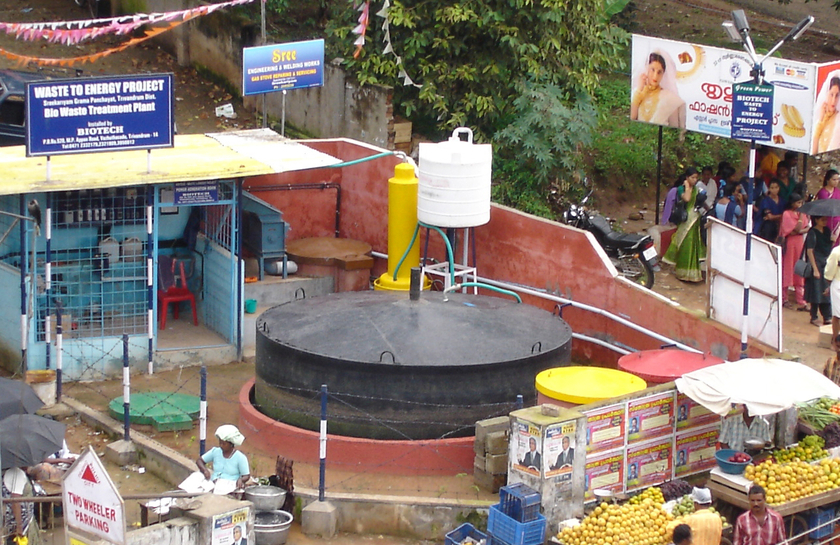Department Sanitation, Water and Solid Waste for Development
Anaerobic Digestion of Organic Solid Waste
Background
Besides composting or direct animal feeding, anaerobic digestion (biomethanation) of organic solid waste is considered promising treatment option for this particular waste fraction. Anaerobic digestion is a natural biological process that converts biomass into energy (biogas) in the absence of oxygen. Biogas – a mixture of CO2 and methane (CH4) – can be used as a renewable energy source for cooking, lighting or to generate electricity, thereby replacing other fuel sources. Biogas digestate is a nutrient-rich fertiliser that can be applied in gardens or agriculture.
In the past, many biogas support programmes in developing countries focused on rural families with few cattle, using animal manure and human faeces as feedstock. The main goals were to reduce the use of firewood by providing people with biogas, improve soil fertility and reduce indoor air pollution. A lot of experience was gained in optimising the biogas technology. However, as regards anaerobic digestion as a waste treatment option for urban settings, where predominantly kitchen or market waste is used as feedstock, there is little accessible knowledge and information on technical and operational feasibility, challenges and opportunities. This lack of knowledge and information is astonishing, given the enormous waste disposal problems faced by most urban areas in low and middle-income countries.
The more complex substrate of MSW and varying volume streams are a significant challenge for the technology in terms of reliability, operational consistency and durability. While anaerobic digestion of organic household waste in centralised high-tech plants in industrialised countries has become increasingly popular in recent years, most regions of developing countries still lack appropriate low-tech options.
Sandec’s research is therefore focusing on biogas plant performance to obtain more accurate information on gas production, effluent quality, as well as on the economic feasibility and social aspects of this waste treatment method. The findings from the different projects can be downloaded at the top of this page.
General Publications
-
Biogas in Cities - A New Trend? [185 KB]
-
Renewable Energy from Kitchen Waste [746 KB]

